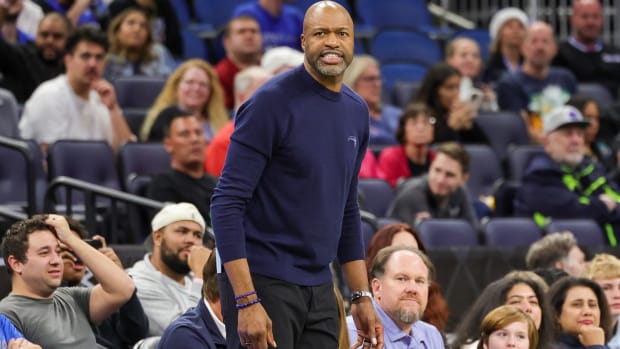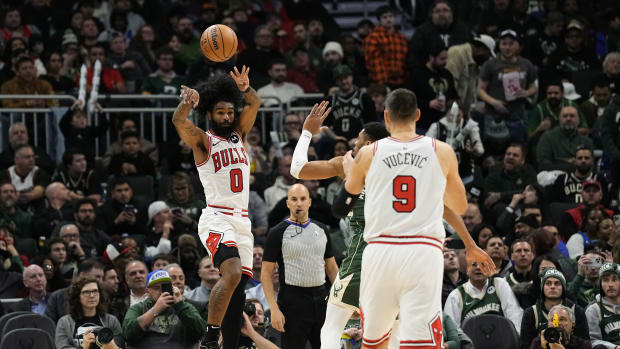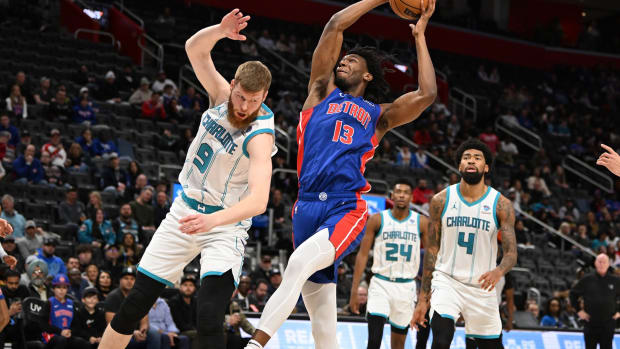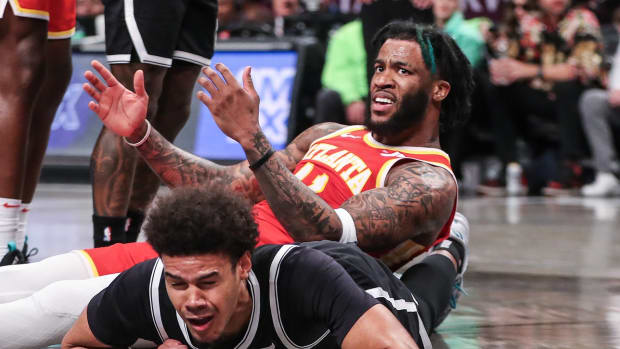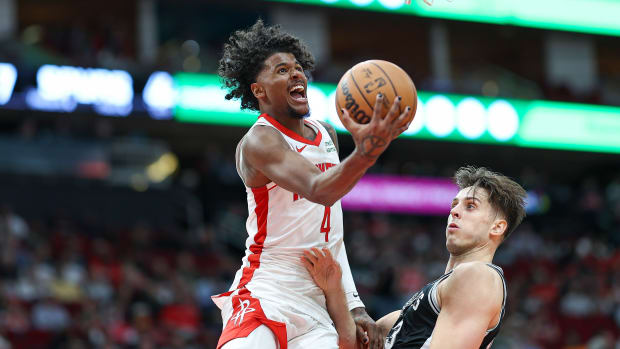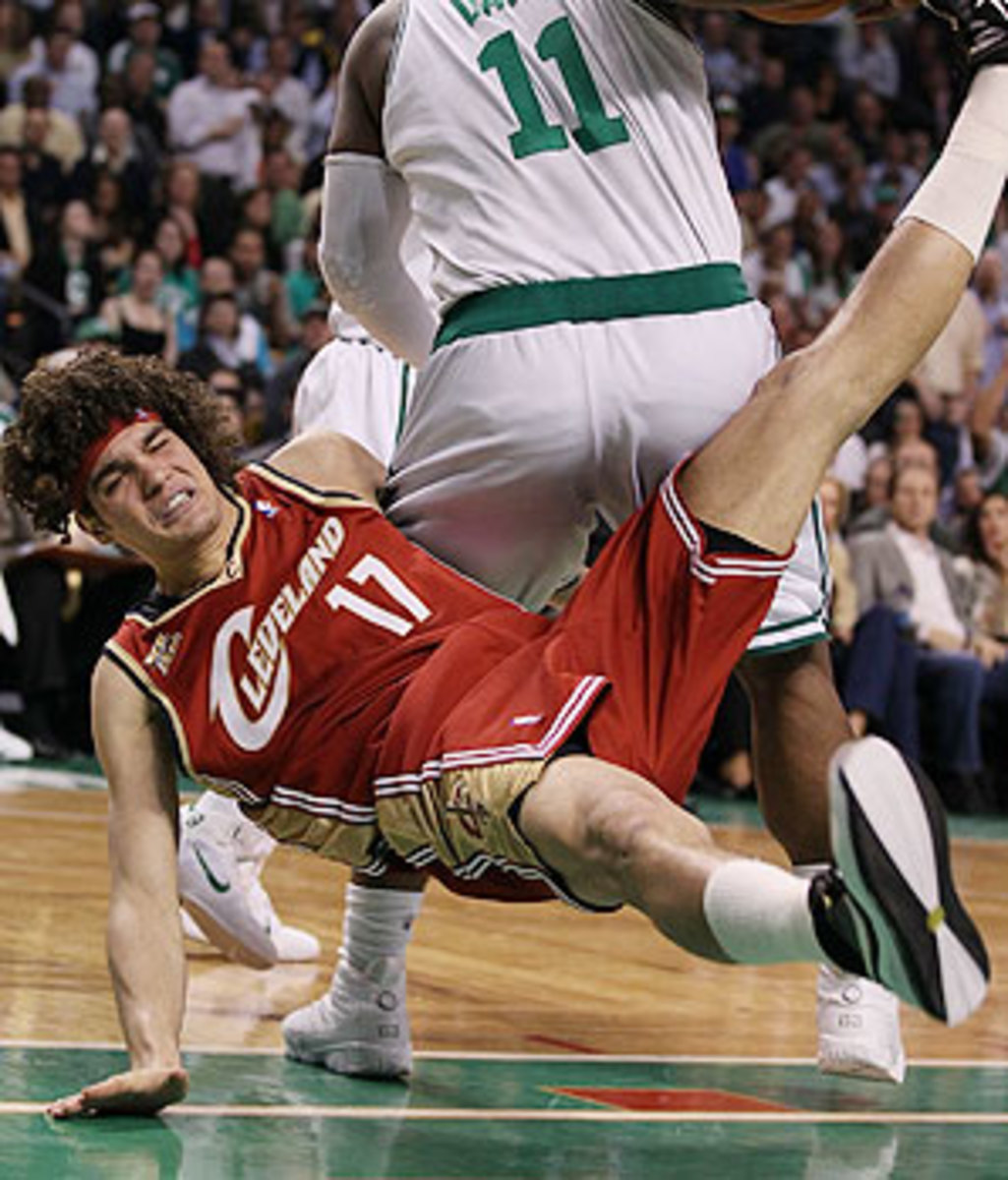
NBA's new flopping policy the best response to a difficult problem
The ugly trend of faking physical contact began in soccer, a sport in which gamesmanship has given way to players writhing in false agony around the world. Soccer has been unable to fix its problem, but now the NBA will have an opportunity to deter players from trying to simulate violent contact in ways made famous by Vlade Divac, Manu Ginobili and Anderson Varejao.
Commissioner David Stern's original idea had been to punish floppers on the spot. But that was never going to work. The NBA game is already the most difficult to officiate in pro sports, and the block/charge call is among the toughest for NBA referees to gauge. It would have been asking too much of refs for them to deal with a block/charge play and at the same time judge the intent of the defender.
The NBA instead will outsource these calls to New York, where league officials can review all of the evidence before making what will often be viewed as the wrong decision. Of course this is going to be an imperfect solution: Think of all of the second-guessing that goes on whenever the New York office decides to fine or suspend players and coaches for altercations.
This new day-after system of flopper punishment is absolutely going to be controversial because there is as of yet no public agreement on what constitutes a flop. When Ginobili stands in front of a hard-driving power forward, is he showing bravery or cynicism? We will find out what the NBA thinks soon enough, and the league's rulings will create a definition that has never existed before.
When it comes to using replay, the interesting contrast between the NFL and NBA is that football officials watch video the next day in order to punish aggressive hits that threaten physical harm to players. While pro basketball likewise issues flagrant fouls the morning after, in this particular case the league will be trying to do away with a form of passive play. This issue being tackled now by the NBA is much less serious and harmful than the issue of brain injuries that currently haunts the NFL; the leagues are in two different realms when it comes to dealing with violence.
How harsh will the penalties be, and will they be tied to the circumstances of the game? If a fourth-quarter flop is seen to have turned a win into a loss, will the punishment for the flopper be more severe? It is going to be difficult to divorce the infraction from the context of the game. And so, in a strange way, this new approach is going to make the game more interesting.






























